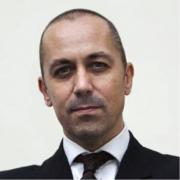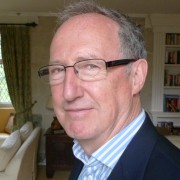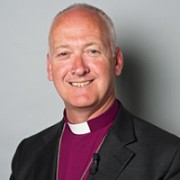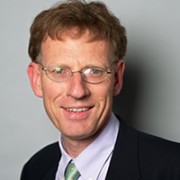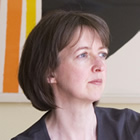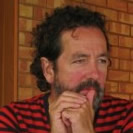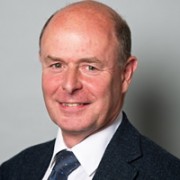Religion is a hot topic in the wider world but, with a few exceptions, television is sorely neglecting it
There is a scene in Sacred Rivers, an upcoming three-part series for BBC2, in which the presenter, Simon Reeve, climbs out of his car to escape an urban Chinese traffic jam and heads on foot towards a building that he compares to a sports stadium.
The building is, in fact, a church with seating for 5,000 worshippers, and Reeve relays to viewers that “by some estimates, there could be 400 million Christians in China in 30 years’ time, making it the biggest Christian nation on earth”.
Religion is a big story. Newsnight caused uproar among Conservative politicians last week with its decision to give a platform to the bloodthirsty UK-born Islamic State fanatic “Awlaki”, immediately after the murder of the US photojournalist James Foley, a story that dominated the news agenda.
And yet ITV has scaled back its religious programming from 104 hours in 2004, when it was under an obligation by the regulator Ofcom to cover the subject, to two hours in 2012, when it was not. Britain’s biggest commercial broadcaster believes there is no money in the genre. Other channels take a similar view.
Aaqil Ahmed, the BBC’s head of religion and ethics, is the only commissioning executive in British television with distinct responsibility in this area. At a time when religious disputes appear to be tearing much of the world apart, this seems like a serious shortcoming that leaves the audience deprived of information they need if they are to understand global politics and the cultures of their neighbours.
The BBC presenter Sian Williams, who hosted a debate on the subject at the Edinburgh International Television Festival last Friday, noted that a quarter of respondents to the 2011 census described themselves as being of “no religion”, up from 15 per cent a decade earlier. But this statistic is not in itself a good reason for television to turn away from religion. Williams hosts the popular Sunday Morning Live on BBC1. She has no religious allegiances and says her objectivity enables her to be curious of all faiths.
Roger Bolton, host of Radio 4’s listener response show Feedback and an experienced broadcaster, told the Edinburgh audience that “religious literacy has never been more important” but that the “potential of programmes in the field of religion … is far from being realised”. He is a trustee of the Sandford St Martin Trust, which gives awards for religious programmes but struggles to find entries. Like ITV, Channels 4 and 5 and Sky have all virtually abandoned the territory, he claims. “What we see, between 2007 and 2012, is a 35 per cent reduction in the amount of spending on what might be called religious programmes.”
But what exactly is a religious programme?
Polly Toynbee, columnist for The Guardian and vice-president of the British Humanist Association, argues that there should be no quotas for religious programmes or what she terms “advertorial for God”, saying that such an approach “breaks the impartiality of reporting”.
While Bolton and Ahmed happily include the BBC comedy Rev and Simon Schama’s The Story of the Jews in their roll call of successful religious programmes, Toynbee regards this as “cheating” when evaluating the need for the genre. “They’re just great programmes,” she says. Ahmed also claims Citizen Khan, another comedy, as a religious show and notes that the BBC2 series The Ottomans: Europe’s Muslim Emperors, presented by Rageh Omaar, was commissioned by the BBC’s religion and ethics department.
Rather alone on this issue, the BBC does 7,800 hours a year of “religious broadcasting”, the great majority on radio in the regions. More than 160 hours are carried on network BBC television.
Channel 4, as is its wont, does things differently. Religion is covered by its specialist factual team and “threaded” into the general output, says Ralph Lee, deputy chief creative officer. The coverage can be combustible. The 4Ramadan season in 2013 included a call to prayer that became the channel’s most complained-about broadcast of the year. The Sun splashed the story as “Ramadan a ding-dong”. But Lee said the series introduced a “generalised audience to what Ramadan meant” and was welcomed by many of Britain’s three million Muslims. He said the complaints were linked to the unfortunate timing of the long-planned season, so soon after the murder of soldier Lee Rigby, and mostly resulted from an online campaign by the English Defence League.
Tony Jordan is one of Britain’s most successful television writers, responsible for hits such as Life on Mars and Hustle as well as many memorable episodes from EastEnders. He is also a notable maker of religious programmes and always pitches for a mainstream audience. His drama The Nativity for BBC1 attracted five million viewers. Another of his biblical pieces, The Ark – in which Noah had four sons but one didn’t make it on to the boat – will run on BBC1 in prime time this autumn.
But most programme-makers do not have Jordan’s influence with channels.
The result is a decline and marginalisation of religious content, with TV primarily focusing on extremism. Memorable moments have included John Sweeney’s screaming fit in his Panorama probe of the Church of Scientology, and documentaries on the poisonous Muslim cleric Anjem Choudary or eccentric Christian communities such as the Hutterites.
Current affairs is inevitably drawn to radicalism and 80 per cent of programme-makers told the Edinburgh television festival that extremist subject matter in religious content draws better ratings.
We need to hear those extreme voices, such as the Islamic State’s odious Awlaki, to appreciate the danger they represent. But British television’s treatment of religion needs to go beyond the dangerous and the bizarre – to teach the audience about the contemporary world as well as the past.
This blog first appeared as an article in the Independent, 24 August 2014.


